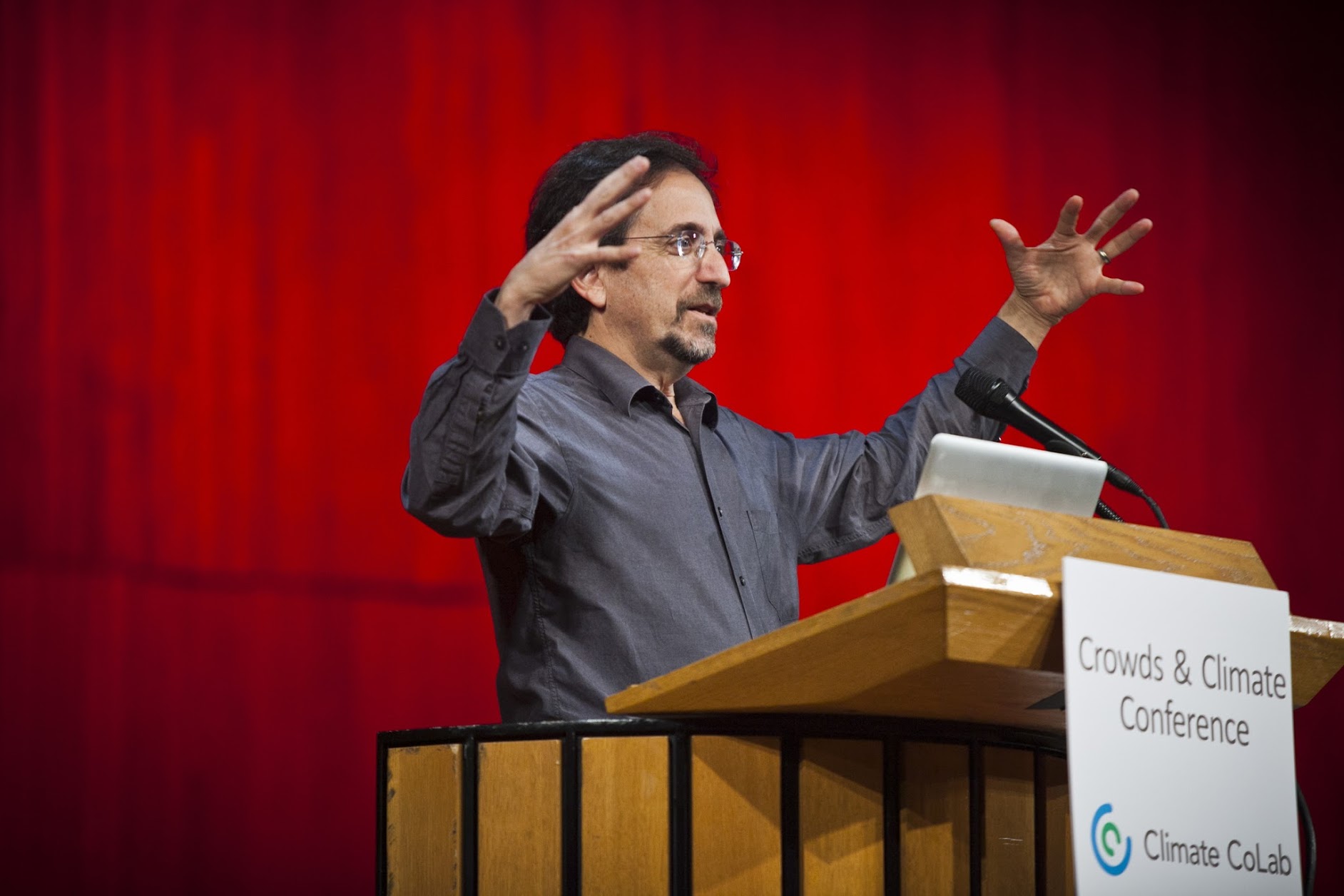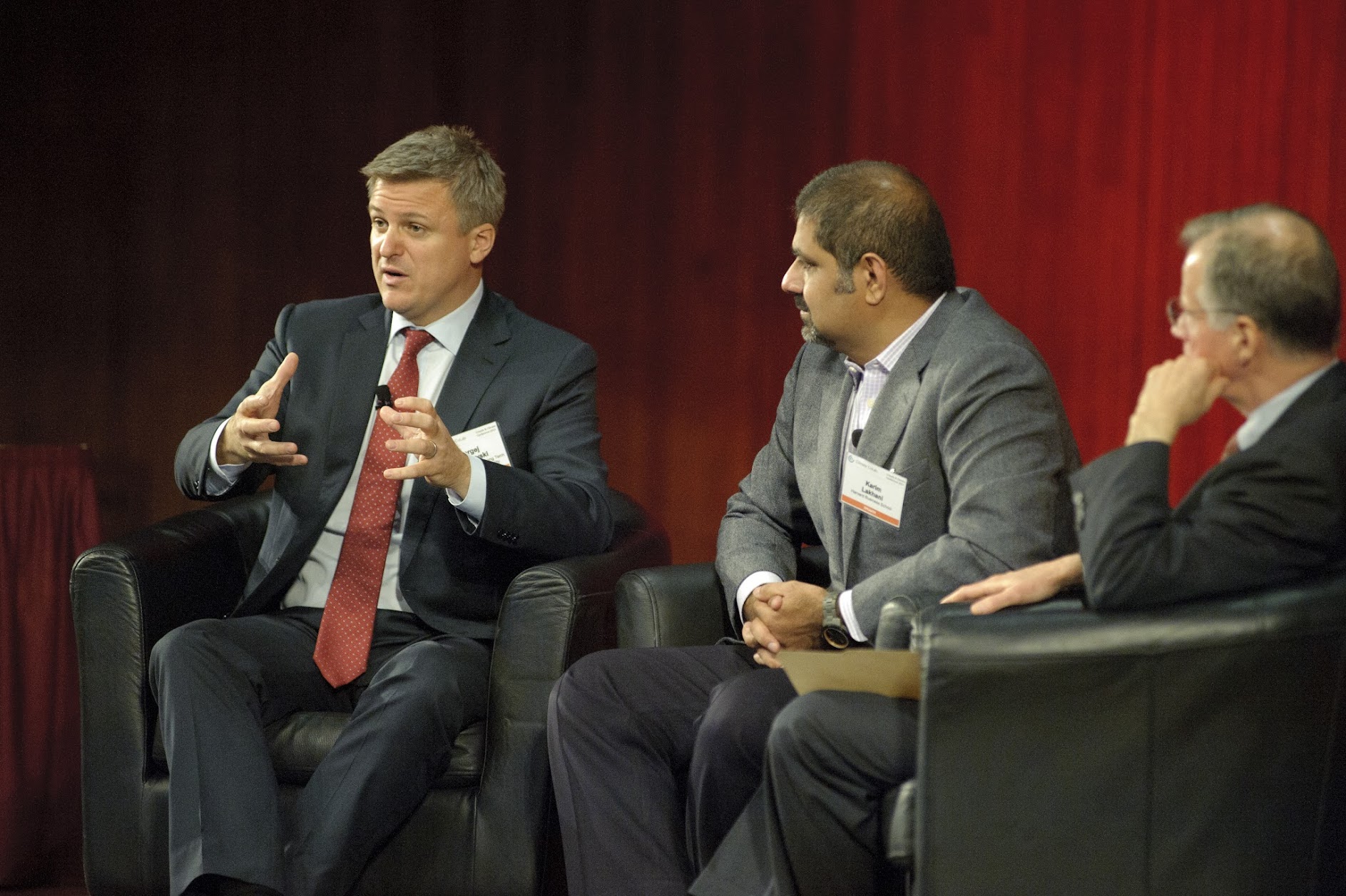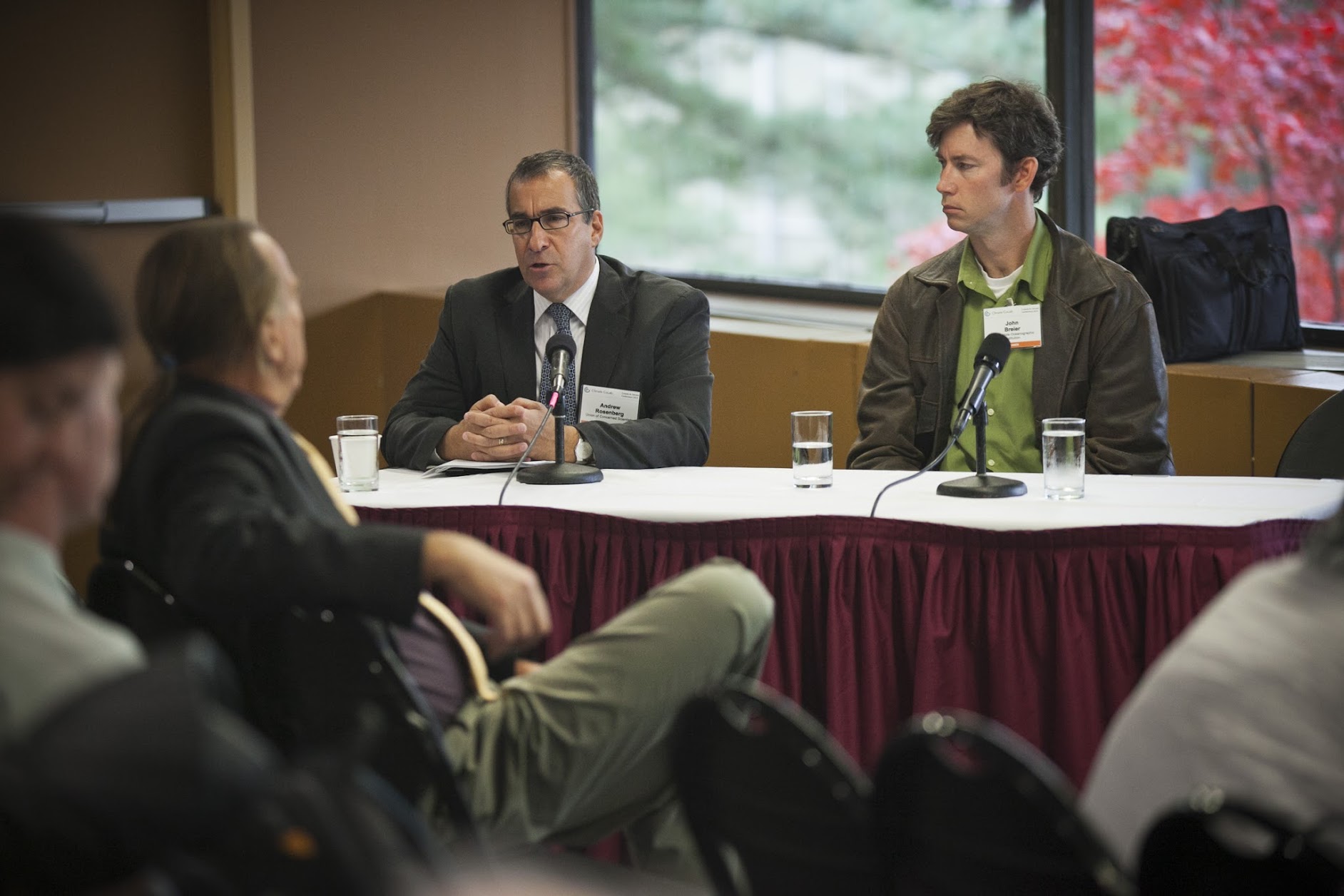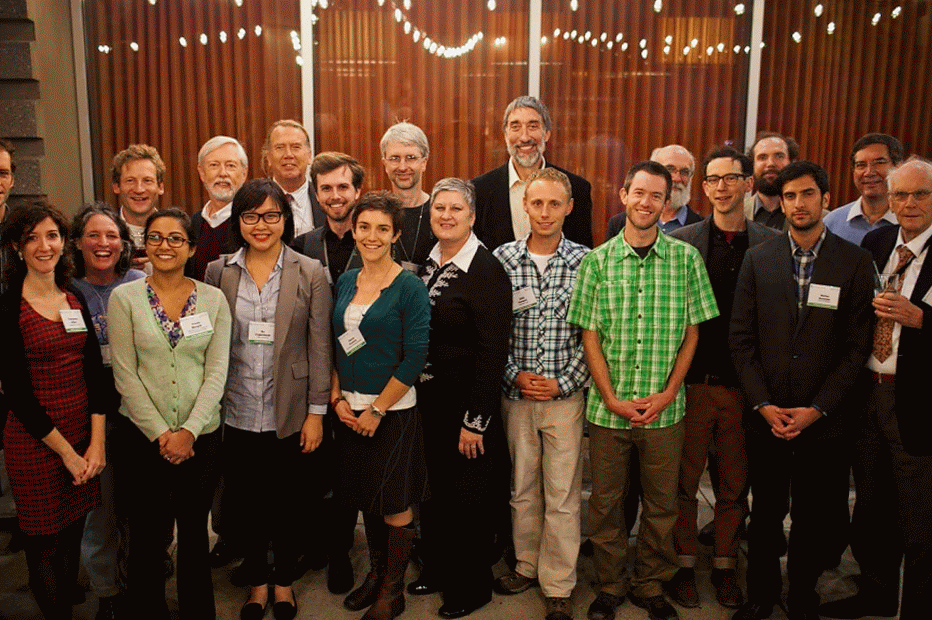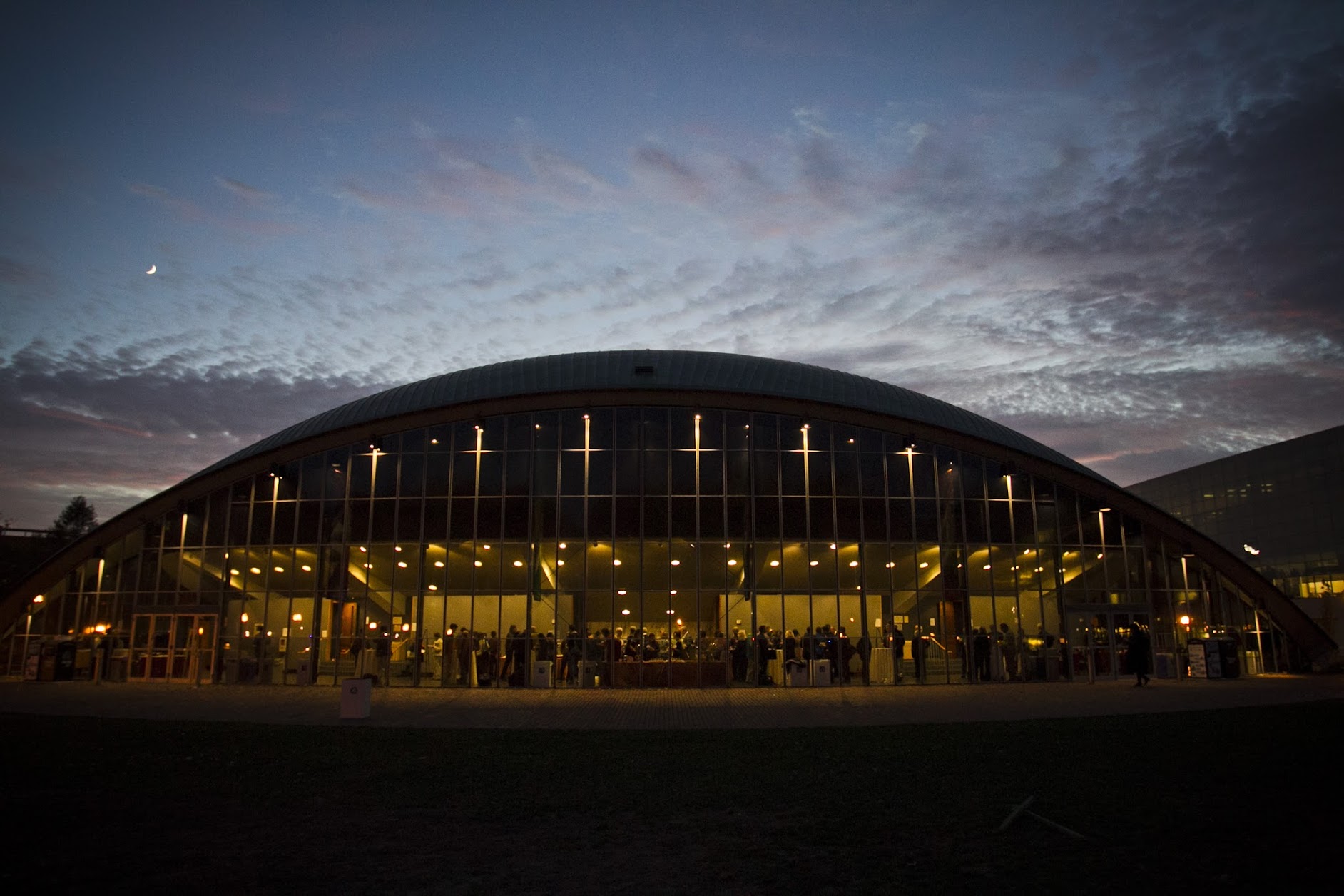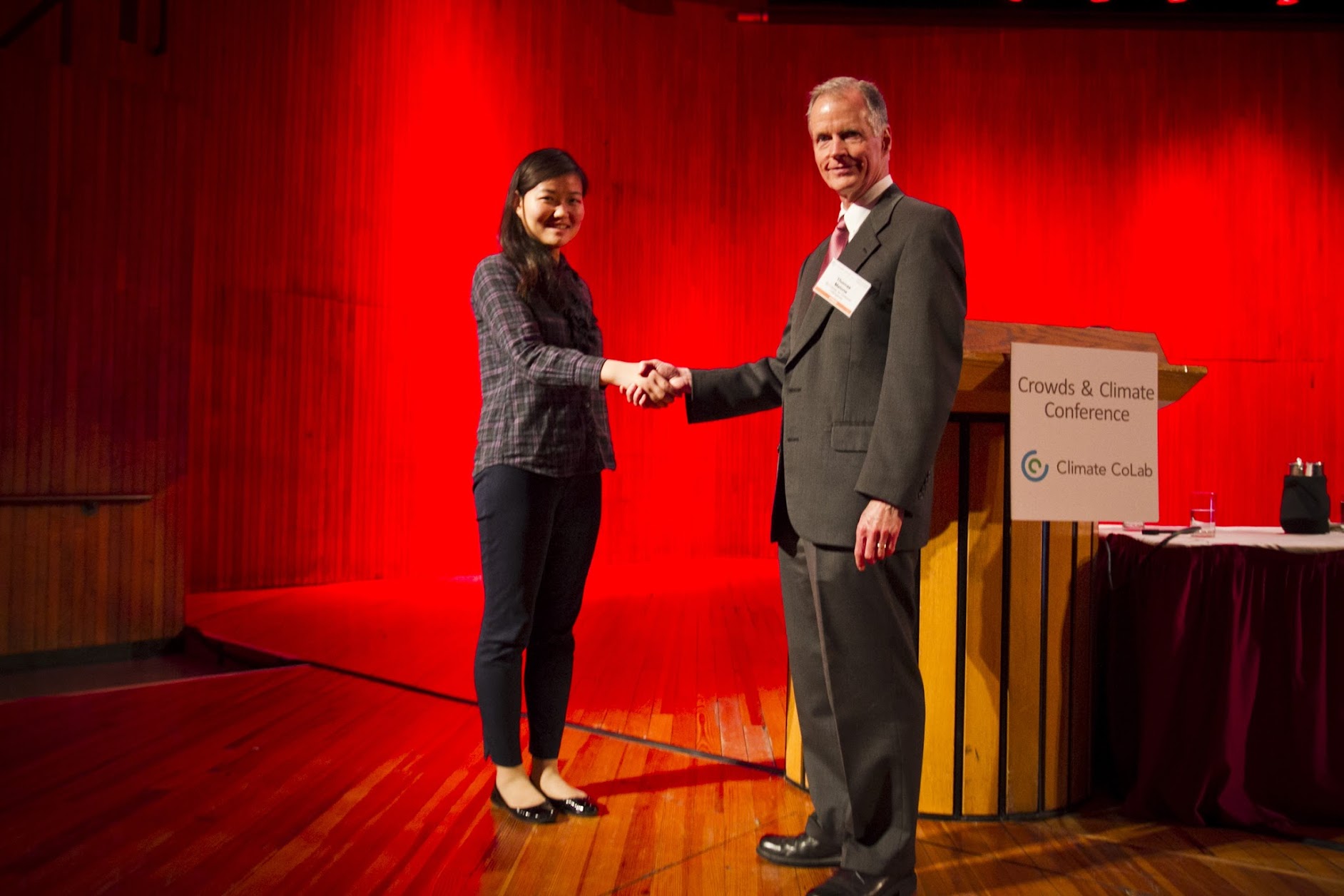Crowds and ClimateMobilizing Crowds to Develop Ideas
|
 |
Crowds and Climate featured a thought-provoking three-day program that explored the role new technology-enabled approaches -- such as crowdsourcing, social media, and big data -- can play in developing creative new ideas and taking action on climate change. Running from November 6-8, 2013 on the MIT campus, the conference was attended by over 300 people, with an additional 500 joining virtually via live-stream and Google Hangout. All in all, over 30 countries were represented.
The conference combined a traditional format, including keynote speakers, planery panels and breakout sessions, with a strong online and crowd-focused approach, including virtual engagement, interactive Twitter dialogues, and a half-day Open Space "unconference" on Friday. The Climate CoLab, the MIT project that hosted the conference, also announced the winners of the $10,000 Grand Prize, and outlined the approach for its 2014 round of activities.
Keynote Speakers
As the conference's opening keynote speaker, Fred Krupp, President of Environmental Defense Fund, described the political and economic challenges we face in attempting to take action on climate change, and outlined the issues that need the most immediate attention.
Fred Krupp giving the opening keynote. Watch the recording.
In the Thursday morning keynote, Andrew Revkin, a Pace University Senior Fellow and DotEarth New York Times Blogger, spoke about new communication technologies, and how they can positively (or negatively) influence the human-climate relationship.
Andrew Revkin giving the keynote speech on Thursday. Watch the recording.
Expert Panels
A diverse range of panelists--including experts in emerging communication technologies and community organizing, cleantech investors and business leaders, and current and former government officials--shared cutting edge challenges and opportunities for crowds to play a role in influencing businesses, policy-makers, and public attitudes and behaviors on the issue of climate change.
|
What are crowd-based approaches, and how can they help solve complex, global challenges -- especially climate change? Watch the recording. Thomas Malone, Director, MIT Center for Collective Intelligence (moderator) |
How businesses are leveraging bottom-up strategies to make their products and processes more sustainable. Watch the recording. Jason Jay, Director, MIT Sloan Sustainability (moderator)Peter Evans, former Director at General Electric; currently Vice President, Center for Global Enterprise Nancy Pfund, Founder and Managing Partner, DBL Investors Otto Scharmer, Senior Lecturer, MIT; Founding Chair, Presencing Institute |
|
How crowds -- traditional and IT-enabled -- can influence policy makers to take action on climate change. Watch the recording. Eric Pooley, Sr. Vice President, Environmental Defense Fund (moderator) |
A review of novel approaches for encouraging changes in public attitudes and behaviors on climate change. Watch the recording. Tom Zeller Jr., Knight Science Journalism Fellow (moderator) |
|
The role of simulation models and big data in mitigation and adaptation planning, John Reilly, Co-Director, MIT Sloan Joint Program on the Science and Policy of Global Change (moderator) |
Solutions from the Crowd
The conference also held ten breakout sessions, which included presentations by the winners of the 2012-13 contests sponsored by the Climate CoLab, along with responses from an expert panel and the audience on how these proposals could be implemented. Sessions included: (click the links below more details about the session and to watch its recording)
|
Climate CoLab winners who could not attend in person participated virtually via Google Hangout. Here, Nicci Diederichs joins the conference live from South Africa. |
Networking
During the lunches on Wednesday and Thursday, delegates were invited to join others with similar interests at tables designated for discussion on a range of topics related to climate change. The Wednesday evening reception provided an opportunity for unstructured mingling, meeting, and celebration.
 |
Winners of the Climate CoLab contests, 2012-2013 |
Reception at Kresge Auditorium on Wednesday evening
Announcing the Winners
We honored the 28 Climate CoLab winners, and awarded the 2013 Climate CoLab Grand Prize to Dr. Geoffrey Hay and his HEAT team from the University of Calgary, with an Honorable Mention to Peggy Liu and Chenyu Zheng from JUCCCE (Joint US-China Collaboration on Clean Energy).
|
Geoffrey Hay and his HEAT team attended virtually and sent a thank you video for being selected as the Grand Prize winner. |
Thomas Malone, Director of the MIT Center for Collective Intelligence, congratulates Chenyu Zheng from JUCCCE for receiving an Honorable Mention. |
Unconference
In Friday's unconference, attendees practiced the concept of self-organization. Through a facilitated session, people could host or join breakout sessions that were of greatest relevance, interest and importance to them. See what topics were chosen and read the discussion notes here.
|
Participants wrote topic ideas on an index card and proposed them to the other attendees. |
A real-time schedule was created from proposed topics, which was available to all participants on their computers, iPads and phones via Google Drive. |
|
Particpants could choose which session to attend, and were able to move freely between breakouts. They were even able to edit the schedule and create or merge topics on the fly. |
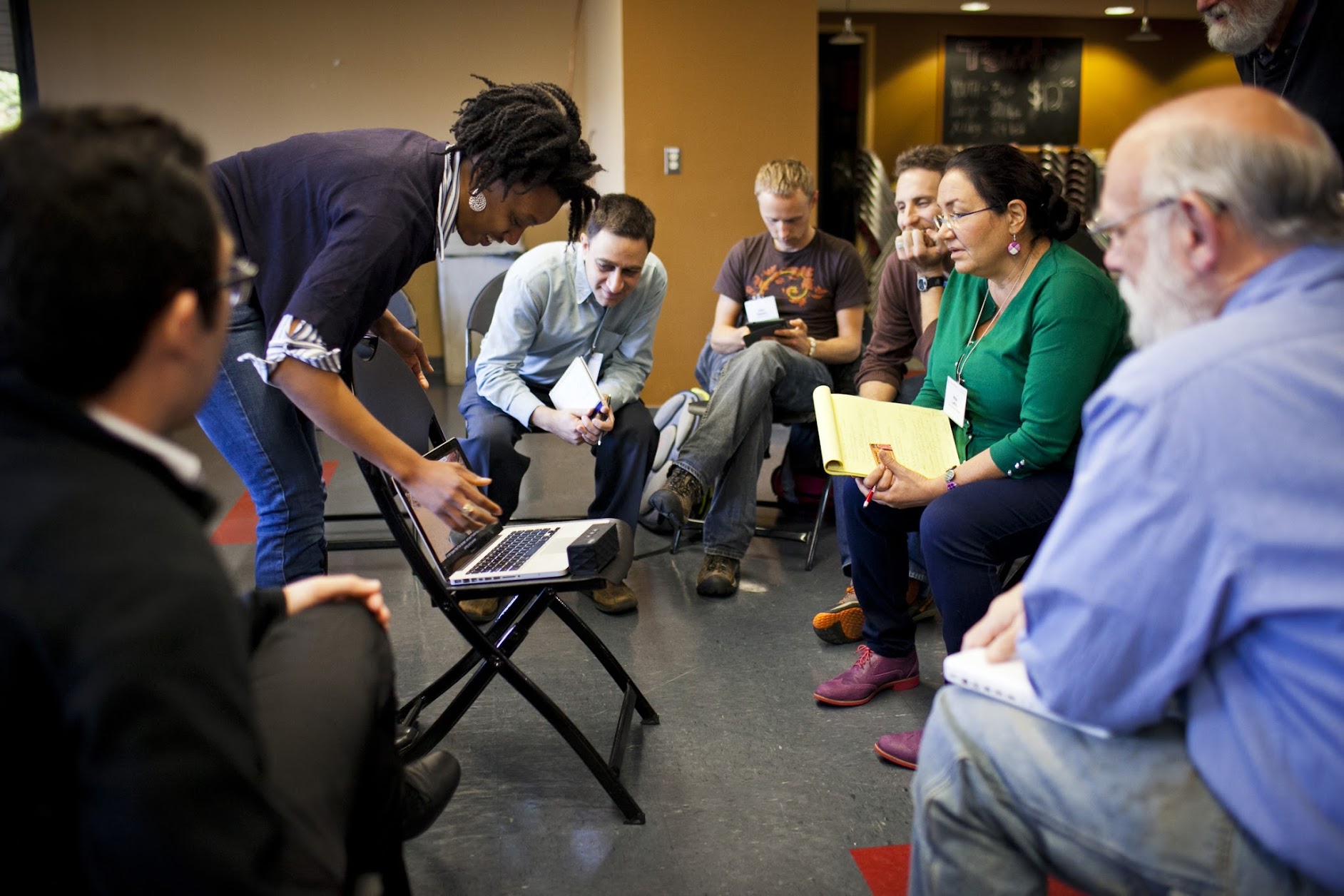 As the sessions had no formal leader, conversations were democratic and collaborative.
|
|
At the end of the unconference, all participants gathered together and shared one word that summarized their experience. |
Participants left invigorated and inspired. For many, this was the highlight of the conference.
|
Crowds and Climate was hosted by the MIT Center for Collective Intelligence's Climate CoLab, and co-sponsored by four groups at MIT working on aspects of climate change:
|
|
 |
 |
 |

